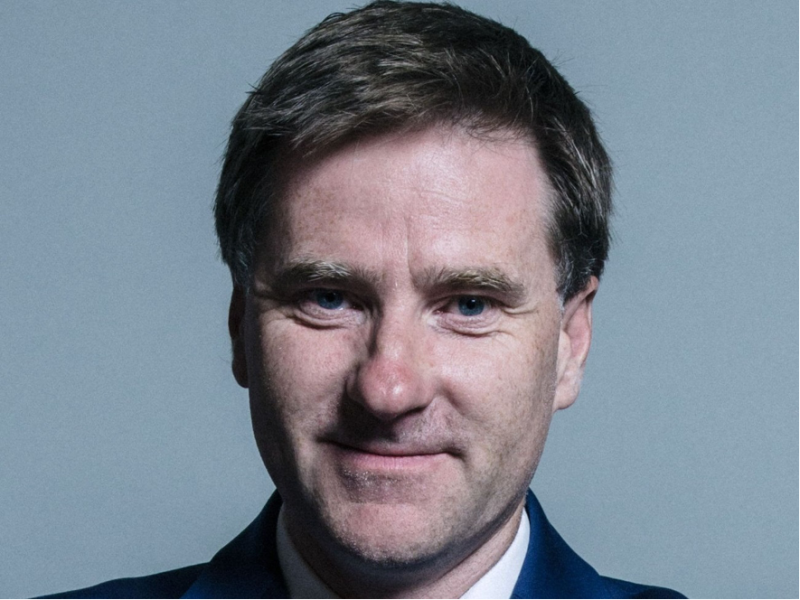In the news
It has been almost three and a half years since the UK went into the first of a number of lockdowns, following the outbreak of Covid-19.
This summer, the Covid inquiry was set up to examine the UK’s response to the outbreak and overall impact of the Covid-19 pandemic. Held under the terms of the 2005 Inquiries Act, politicians, experts, civil servants and representatives of groups particularly affected by Covid started to be called as witnesses and interviewed by the inquiry’s chief counsel, Hugo Keith KC.
This inquiry is to be continued over the next few years, as it tries to uncover why the UK has had one of Europe’s highest death rates for under-65s.
As the inquiry commenced, media coverage on the questioning was largely focused on the lessons policymakers' needed to learn in the wake of the pandemic.
Reporting for i News, Policy Editor Jane Merrick noted that the government’s scientific advisers believed a lack of investment in the NHS and public health in the years before Covid emerged as a "problem" when medics "were trying to grapple with the virus."
Another issue that generated significant emotion surrounding the inquiry was the handling of funerals and how they were conducted during the pandemic. For the BBC, Jim Reed reported that funerals were traumatic for many, with relatives often unable to say a proper goodbye to loved ones.
Jean McHale and Laura Noszlopy wrote for The Conversation on the under-represented impacts the pandemic had on the social care sector - the sector that has been left unacknowledged in comparison to its health counterpart. They explained how the Care Act easements meant that in some cases there were longer waits for assessments and decisions regarding care packages.
In addition, phone lines were often closed as staff began working from home. Inequalities around digital access became apparent as appointments moved online. Many service users, especially older people and those with learning disabilities, struggled to request or access help once social support services and day centres were closed.
Rob Freeman for The Independent even reported that the government support for care homes during the pandemic was withdrawn too soon, according to a new study into the financial impact of Covid-19 titled 'Bailed Out and Burned Out?' by Warwick Business School. The report studied the accounts of more than 4,000 care home companies.
According to Freeman, the report also revealed that the system had been propped up by staff working extra hours without pay.
Interview
We sat down with Steve Brine MP, Chair of the Health and Social Care Select Committee, to discuss the impacts of the pandemic on the adult social care sector and the lessons to learn from policymakers' handling of the crisis.

What were the most unforeseen impacts of the pandemic on the adult social care sector?
The pandemic put a massive strain on a social care sector that was already under pressure. Between 2020-21, the Health and Social Care Committee led a joint inquiry with the Science and Technology Committee into lessons learned. We found that whilst the UK was not alone in suffering significant loss of life in care homes, the tragic scale of loss was among the worst in Europe and could have been mitigated. In particular, staff shortages, the lack of testing, difficulties in obtaining PPE and the design of care settings hampered isolation and infection control and the ability to keep Covid-19 at bay. The pandemic also had a significant and lasting impact on the social care workforce, where staffing gaps have continued to grow.
The pandemic put a massive strain on a social care sector that was already under pressure
Are claims that the health service was prioritised over social care during the pandemic justified?
The inquiry found that the lack of priority attached to social care during the initial phase of the pandemic was illustrative of a longstanding failure to afford social care the same attention as the health service. In the case of a future pandemic, the joint report recommended that prominence of social care within the Department of Health and Social Care should be enhanced and Ministers must address the relative lack of knowledge of social care within the Department and NHS.
Post-pandemic, how can policymakers improve the inter functionality of the health and care services?
Planning for future pandemics should have a more developed and explicit consideration of the intense interaction between the NHS and social care. The Committee is optimistic about the newly formed Integrated Care Systems (ICS). We hope these will offer a refreshed way of working across health, social care, and wider local authority functions and community organisations. However, it is vital that social care is not forgotten, and that ICSs do not become too NHS-centric. To do this, the Government and NHS England, working with ICSs, must monitor and resolve poor partnership working.
How can the Government ensure additional funding for the sector promotes its post-pandemic recovery while also addressing inconsistencies in local care provision?
Whilst additional funding for social care is welcome, long-term reform of the sector is overdue and should be pursued as a matter of urgency. One aspect of reform the Committee argued in its workforce report should be prioritised is to end “by the minute” commissioning by Local Authorities and private providers. This practice is having a damaging impact on the continuity of care offered to people in receipt of social care and the terms and conditions under which workers provide care. Instead, workers should be paid in advance to provide care that is both relational and task-based and is focused on achieving outcomes. Lack of funding also underpins the poor digital capabilities and infrastructure within social care and is preventing the sector from benefiting from the huge potential gains digital can bring.
Opinion
Gavin Edwards, Head of Social Care at UNISON, discusses how the adult social care sector suffered during the pandemic and what lessons can be learnt from the experience.

Memories of the pandemic are still raw for many, including the thousands of care staff who worked on the front line. Being left with no choice but to make aprons from bin bags, watching helpless as care home residents died, and living in fear of infecting loved ones are among the harrowing experiences haunting them still.
Social care was treated as a second-class service and its skilled employees abandoned by the government during Covid. There was no protective ring around care homes. Ministers systematically neglected staff and the people in their care, exposing them to the virus with grim consequences.
Matt Hancock’s recent evidence to the Covid Inquiry highlights this lack of political accountability. The former health and social care secretary's account of the darkest days of the pandemic was a masterclass in buck-passing, deflection and responsibility dodging. His claim that he had the job title, was accountable but didn't have the levers to act rings hollow. When the mood took Matt Hancock, he was perfectly capable of using his influence and authority.
Discharging Covid-positive NHS patients into care homes, forcing staff to take the vaccination, banning relatives from visiting. These were all policies he pursued. Matt Hancock's assertion he was powerless over a care sector left without enough safety kit, sick pay or adequate testing defies belief.
Social care was treated as a second-class service and its skilled employees abandoned by the government during Covid
This is a poorly disguised attempt to shirk responsibility for a situation the then secretary of state could have prevented, had the sector been a priority. Powerlessness was Matt Hancock’s choice. He could have made proper sick pay mandatory for all care workers. He could have made sourcing protective kit and testing for all care workers his absolute priority. Matt Hancock's disastrous failure to keep the care sector from harm is a lesson that radical change is needed. And needed now.
That means a national care service providing access to quality support for all those who need it. A service on a par with the NHS, delivered by empowered local councils, but where political responsibility stops with the secretary of state. A high-quality care service backed by long-term funding, set at decent levels. A service focused on providing world-class care, not delivering huge profits for shareholders.
All staff in social care would have their wages set nationally, along with holidays, sick pay and other job benefits. Underlying all this would be a proper workforce plan. But this will take time. Time the sector doesn't have. Care workers need an emergency pay boost now to help keep experienced staff in their posts and encourage others to have careers in care. The staffing crisis won't end otherwise.
UNISON recently commissioned a report from the Fabian Society. The response to it has been heartening. It’s had a major impact on the debate by setting out a roadmap for reform. Some learn by their mistakes. Others, like this government, look set to carry on repeating them. Social care can no longer be ignored or forgotten. Care staff and those they support deserve a much brighter future.



